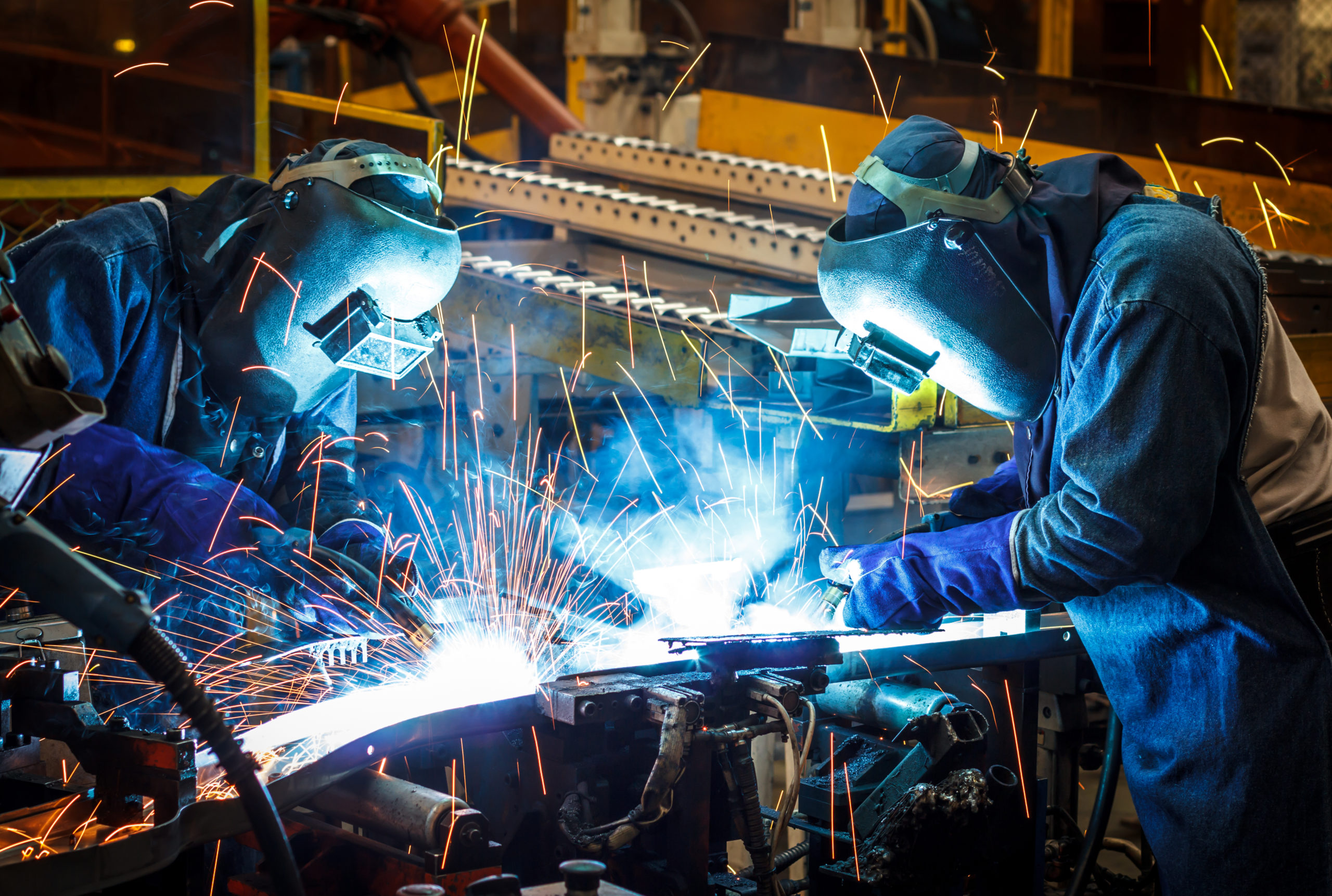04, Apr 2021

The American and European welding industry has contributed to the wide growth of various welding processes, and without welding much of what we use on a daily basis cannot be manufactured, and with the increase in needs and industrial progress, the list of products in which welding is involved grows, thus increasing the number of jobs for people with high skills, especially in urban areas that Its jobs enjoy good wages, and naturally the jobs differ according to the exact duties of each field. The following are descriptions and classifications of the profession, knowing that they may differ from one site to another.
Welder welders: are skilled craftsmen who produce welds in a variety of complex products through their own craft and skill.
Tack welders assistant: It is one of the skilled workers who help welders by making small welds to hold the parts in place, and it must be applied correctly so that it is strong enough to assemble the joints at the same time not to interfere with the final welding.
Welding operators: One of the most skilled technicians operating the automatic machines and equipment used in industries.
Welders’ assisters: They are employed in some welding shops to do the work of cleaning slag and assist in moving the welding position (eg, moving from horizontal to vertical).
Welder assemblers, fitters: They are skilled in assembling connections and parts and placing them in the right place. These workers are able to understand and interpret engineering drawings and welding procedures and are highly skilled to understand and know the effects of expansion and contraction of many different types of metals.
Welding inspectors: For inspection and control, they are often required to obtain certificates approved by an association such as CWI or TWI, known as the certification of welding inspectors, and to obtain these certificates, they must pass the tests prescribed in one of the approved standards and read the schemes and symbols and are familiar with metals, inspection techniques, visual inspection and tests. Non-destructive with proof of all these skills.
Welding shop supervisors: They usually do not perform the welding regularly and this depends on the size of the workshop, but they have experience and skill in welding as well as administrative skills, planning and selection of welders and workers.
Welding salespersons: Mostly the person responsible for selling and supplying welding equipment to workshops and factories and thus possesses marketing skills as well as a broad understanding of the welding process as he can provide information about products to persuade customers to make purchases.
Welding shop owners: It is a person who possesses a high degree of skill and knowledge of small business management and prefers to run his own project, often he is mainly a worker and the owners of welding workshops may specialize in one specialty only, for example (repair - manufacturing - maintenance) or he works As a subcontractor, starting from small projects to large projects.
Welding engineers: Welding engineers: The engineer in charge of engineering designs and supervision of complex welding works, and a welding engineer may work with other engineers in various fields such as mechanical engineering, electronics, chemicals, or civil engineering, whether it is building construction, ship and aircraft manufacturing, or pressure vessels. And tanks, welding engineers are required to know all welding processes and metallurgy, in addition to good skills in mathematics, symbols, design and social communication with people, and requires obtaining an advanced university degree and a professional certificate in welding.
Generally, many industries require that the welder, the operator, and the welders be able to pass practical or theoretical tests according to a specific code or standard, and therefore the highest paid workers are those who have the skills and education necessary to read engineering drawings and carry out the work required to produce high-quality welds and in accordance with standard standards.
Also, large industrial companies employ people who work as support for welders who are engineers and technicians who must have knowledge of chemistry, physics, minerals, electricity and mathematics, and where the engineer is responsible for research, design and development, and the technician works as part of the engineering system and supervises the actual work and then provides the engineers with the necessary reports. For a specific project or process, there are many other groups working in this field that make models and molds and have experiences in drilling, cutting, cutting, rewinding and shaping metals.